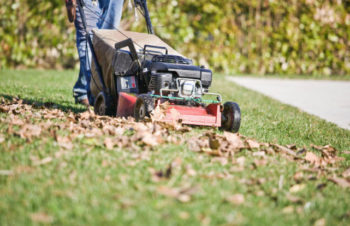 We have a lot of leaves in Washington Grove and they have to go somewhere. Can we use more of the leaves in our yards? Find ways to collect them that cause lower carbon emissions? Have fewer collection trucks come through town?
We have a lot of leaves in Washington Grove and they have to go somewhere. Can we use more of the leaves in our yards? Find ways to collect them that cause lower carbon emissions? Have fewer collection trucks come through town?
Here are some ideas to help lower our Town’s carbon emissions during this fall’s leaf cleanup:
🍁 Leave leaves where they fall. Trees and shrubs are nourished naturally by decaying leaves that return their nutrients to the soil as nature’s free, organic fertilizer; some leaves and debris left under trees and shrubs is beneficial.
🍁 Compost. It’s amazing how many leaves can be absorbed in a compost pile. Week after week, just keep dumping leaves in, add grass clippings, and watch them sink. Locate your compost pile in the sun and turn the contents often if you can. Lots of leaves will avoid the collection trucks by going into the pile, and eventually good soil will be formed from all those leaves.
🍁 Try a different approach to leaf management. Let a section of your yard go a little wild this fall. Find out if clearing away fewer leaves works for you there. You may want to clear away the first round or two of this year’s leaves to protect your grass and then let a light layer remain over the winter to fertilize your grass naturally and hinder weeds.
🍁 Mulch the leaves. Mulching hastens leaf decay and absorption into the earth or compost pile, and avoids trucking away mounds of leaves. Shredding leaves to fine pieces with a mower, though, requires repeated runs over the leaves, consuming more gas or electricity, so moderate mulching is encouraged.
🍁 Use an electric blower or mower. If you use a blower to move the leaves or a mower to mulch them, electric machines are much better for emissions than gas-powered ones, especially if you rely on renewable sources for your electricity. See Yard Tools for a Greener Grove for information about electric tools that your neighbors are already using and, in some cases, will lend for you to try out.
🕷 Tick alert: While leaves protect things we like such as bees, butterflies, and lightning bugs, piles of them can host ticks. The tick population can be reduced by mulching your leaves. Experts advise not to create leaf piles near where children play or people congregate. And when doing any yard work or outdoor activities, always dress to protect against ticks and check yourself, kids, and pets after being in areas subject to ticks.
Reducing the use of gas-powered blowers and mowers and reducing the amount of leaves that rely on truck removal will be moving in a better direction for the climate.
